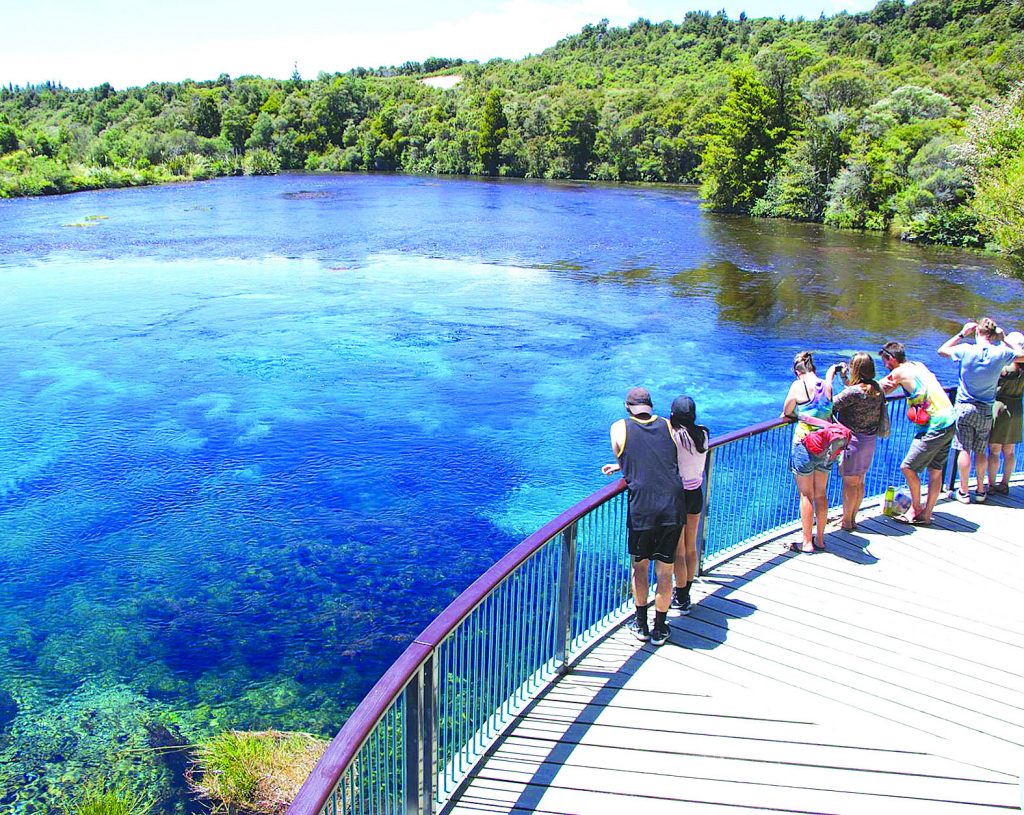
The major stakeholders in the Te Waikoropupū Springs Water Conservation Order (WCO) process all appear to have significant issues with the recommendations published by the Environment Protection Authority (EPA)’s special tribunal.
The tribunal’s Draft Order was released in March this year, almost two years after the tribunal held an extensive hearing in Takaka.
A total of 10 parties, representing all points of the ideological compass, have lodged proceedings with the Environment Court and will now prepare for an inquiry.
The EPA’s role in the Water Conservation Order process was to provide administrative and secretariat support to the Special Tribunal. It does not have a role in the Environment Court inquiry.
The latest development will add another potentially lengthy chapter to the WCO saga, which officially began with an application to the Ministry for the Environment in 2014.
The dissatisfied supporters and objectors of the WCO application who recently lodged proceedings include organisations and individuals from the farming sector, environmental advocacy, aquaculture, power generation, local government, and the applicants themselves (see Box 1).
Box 1:
List of parties that have lodged proceedings with the Environment Court.
NZ King Salmon
Trustpower
Save our Springs – Kevin Moran
Robert and Cherrie Chubb
A P Reilly
Upper Takaka Irrigators
David Scotland and Sally-Anne Neal
Federated Farmers
Ngāti Tama Ki Te Waipounamu Trust and Andrew Yuill
Tasman District Council
Farmers and farmers’ organisations generally base their objections on the tribunal’s acceptance of Friends of Golden Bay (FOGB) water quality monitoring data, the integrity of the nutrient modelling, the proposed NO3-N limit of 0.44 mg/l, and the lack of economic impact analysis on primary and secondary industries. Future options to increase fertiliser application, stocking density and water abstraction for irrigation schemes could be severely limited should the WCO be implemented in its current form.
Tasman District Council’s objections overlapped significantly with those advanced by farming sector interests, stating at one point in its submission: “The Special Tribunal erred in accepting the evidence of Dr Mead [FOGB], which recommended NO3-N of 0.44 mg/l be included in the Draft Order as a limit…because the evidence established the limit had already been exceeded.”
TDC also objected to the classification of the springs’ spiritual values as “outstanding” and highlighted perceived inconsistencies in the Draft Order document.
On the other side of the fence, Kevin Moran, on behalf of Save our Springs (SOS), argued, amongst other things, that there should be no provision for any increase in water abstraction by farmers, stating. “Any future increase goes against the intent of the WCO to protect Te Waikoropupū Springs.”
WCO joint applicants Ngāti Tama Ki Te Waipounamu Trust and Andrew Yuill echoed the position taken by SOS, stating that, due to the springs’ outstanding qualities, no further abstraction should be allocated from the aquifer or the springs, and that “ecosystem health” should be added to the list of outstanding qualities. They also called for iwi to be consulted on any planning issues related to the waters in the catchment.
There is currently no information concerning the venue or the timing of the Environment Court inquiry but it is likely to be held in Golden Bay. When it does convene, the Court will receive and hear submissions before making a recommendation to the Minister for the Environment about whether the special tribunal’s report should be accepted or rejected.
With such entrenched and seemingly diametrically opposed positions taken by the 10 parties, it’s difficult to see how any consensus will emerge from the Environment Court proceedings.
Join in the conversation:
Tell us what you think, share your ideas, leave a comment. We’ll summarise feedback in next week’s issue.
Article: Jo Richards.
